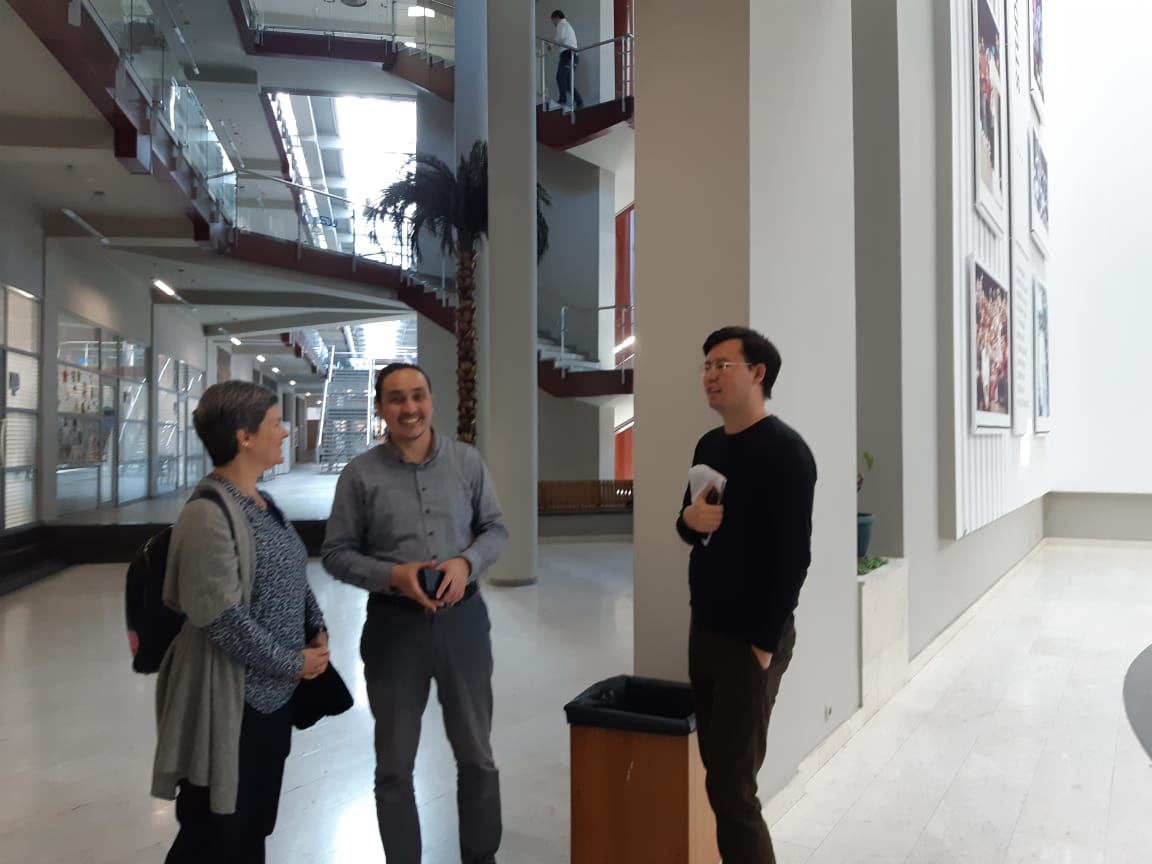Meetings on Implementation Executive and Education Programs on Strategic Trade Control

On October 12-13, 2022, team members of the European Union’s Targeted Initiative (TI) Export Control of Dual-use Goods and Technologies in Central Asia held several meetings in Almaty at the Kazakh-British Technical University (KBTU), the Suleyman Demirel University (SDU), the Satbayev University (SU), and the Nuclear Technology Safety Center (NTSC). During these visits, the TI manager Dr. Maria J. Espona and the representatives of CAIDS, Galym Makhmejanov and Askhat Nametsha, met with top officials and faculty staff of the universities in order to discuss mutual prospects under the Targeted Initiative.
KBTU hosted the first meeting on the 12th of October 2022. An open lecture made by the team, and further discussion with KBTU’s rector, Dr. Maratbek Gabdullin, and the dean of the Business School, Dr. Yearzhan Mukashev, revealed a great potential inclusion of courses on for Strategic Trade Control (STC) at the school in terms of new educational programs, future certificate trainings for the experts and professionals, as well as researchers working in technical fields. As a poly-technical school, KBTU would like to promote STC implementation in industries, as well as the research communities engaged in biochemistry, energy sector, IT, and other areas related to the strategic goods and technologies.
The similar track of collaboration was discussed on the 13th of October 2022 at the meeting with Dr. Aliya Turegeldinova, the head of the management and mathematical economics department of the Satbayev University. It is worth mentioning, that this academic year SU launched a new educational program “Business Engineering” with a minor in STC. Already 22 students were enrolled in the program, which includes 5 disciplines on STC that are supposed to begin in the second year.
Before the third workshop at SDU, vice-provost Dr. Kairat Moldashev provided a short tour of new university campus. As an expert in international economics, Dr. Moldashev expressed SDU’s considerable interest in research activity concerning political, legal, economic, and other aspects of the STC implementation in the region of Central Asia.
A meeting at NTSC took place to discuss the current status of the project that they are implementing and next perspective steps.
These meetings could be seen as a great move forward in STC promotion in academic field. The achievements already made would not have been possible without sincere support of the administration of the universities and their faculty staff.

